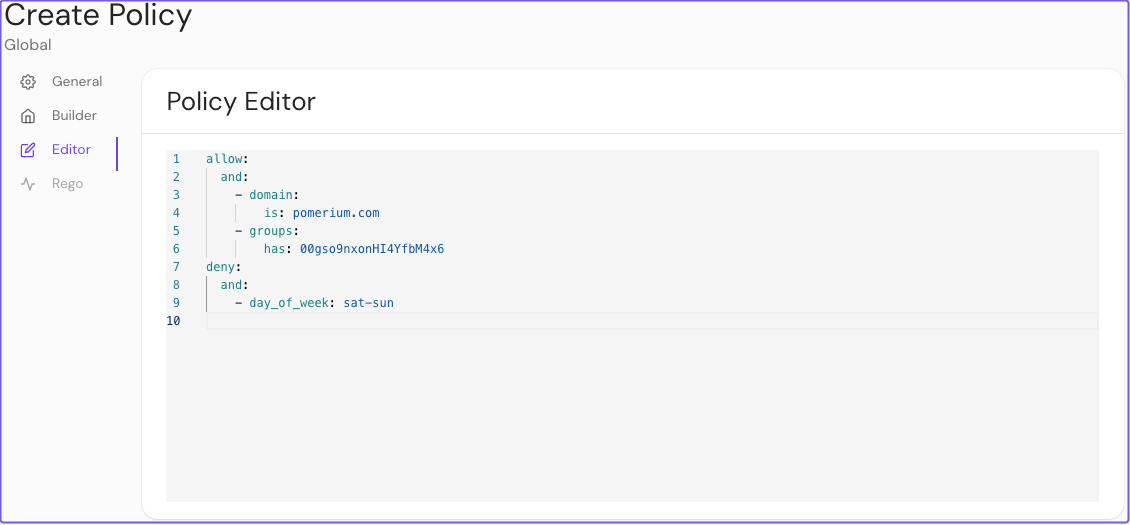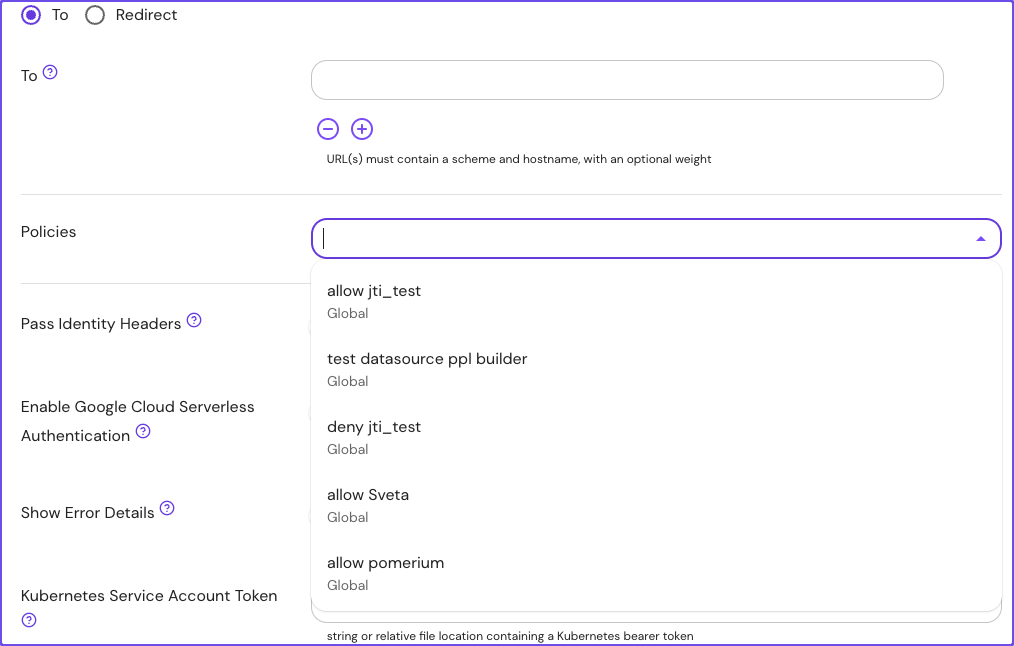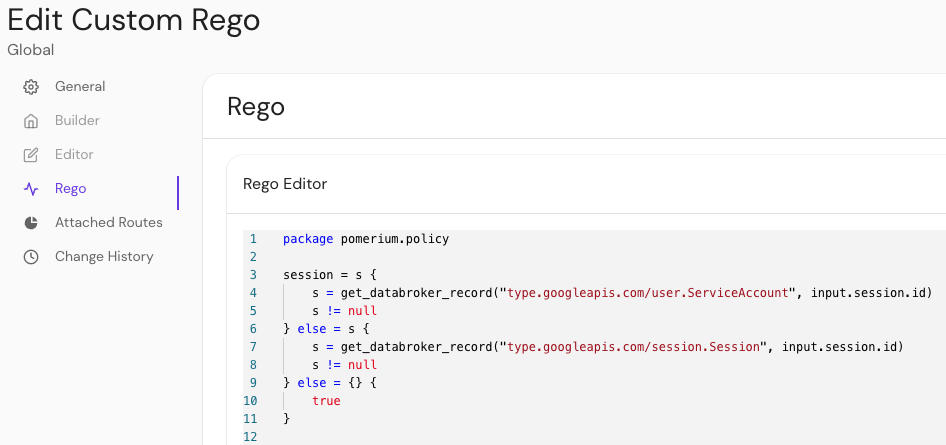Authorization and Policy Enforcement with Pomerium
Pomerium enforces dynamic, context-aware authorization on every request. This capability extends across deployments of any size or complexity, from single-route use cases to multi-namespace or multi-cluster enterprise environments.
Below, we cover how to write and apply policies with Pomerium Policy Language (PPL), when to use Rego, and how Namespaces (Enterprise) and Clusters (Pomerium Zero) fit into the picture.
Introduction: Authorization at Every Layer
Pomerium's approach to authorization is continuous and context-aware, integrating identity information from your IdP, device identity, or external data sources.
- Route-based control in all editions
- Namespace-based and cluster-based organization in Enterprise and Zero
- Policy languages: PPL for most use cases, Rego for advanced logic
Where Policies Live
-
Routes
Policies can be attached to each route, controlling who and what can access the upstream service. -
Namespaces
A namespace is an organizational unit. Policy can be applied once and inherited by child namespaces or routes. Admins can delegate control so teams manage their own routes without harming global security. -
Clusters
Zero-managed clusters pull their config (routes, policies, certificates) from a hosted control plane. Each cluster has its own environment. You can define policies in the Zero console, and they're synced to local Pomerium Core replicas.
Policy Configuration Approaches
Pomerium Policy Language (PPL)
Pomerium Policy Language is YAML-based and covers the majority of use cases.
- Actions:
allowordeny - Logical Operators:
and,or,not,nor - Criteria: email, domain, groups, day of week, device, etc.
A minimal example:
allow:
and:
- domain:
is: example.com
deny:
or:
- email:
is: spammer@example.com
- email:
is: malicious@example.com
Deny overrides allow. Requests must pass at least one allow rule and no deny rules.
PPL in Pomerium Enterprise
Enterprise adds a visual Policy Builder and extended criteria (like time-of-day or external data records). You can build policy via GUI or raw PPL:

Reapply policies across multiple routes or namespaces:

Rego Policies
Pomerium Enterprise
Rego is available to Enterprise customers who need advanced, custom logic beyond what PPL offers.
Rego is the language used by Open Policy Agent (OPA). In Pomerium, you can write Rego modules that produce allow or deny outcomes. For example:
allow := true
or:
deny := [true, "unauthorized"]
You can inspect request data under input.http (method, headers, path), or session details under input.http.session. Learn more in the Rego docs.

Enterprise Features
Namespaces
Pomerium Enterprise
Namespaces group resources and teams in a hierarchical structure. A parent namespace can enforce global rules while child namespaces add local restrictions. Enterprise also supports Clusters.
Key benefits:
- Self-Service: Team leads can manage their own routes and policies.
- Hierarchical: Global admins set top-level constraints (like requiring a
@yourcompany.comemail). - RBAC: Access is granted via roles: Guest, Viewer, Manager, Admin.
Pomerium Zero & Clusters
Pomerium Zero uses a cluster model. Each cluster is a local deployment of Pomerium Core, connected to a hosted control plane. Clusters fetch routes, policies, and certificates from the Zero console:
- Starter domain: Each cluster gets a unique domain with automatic TLS.
- Custom domains: Switch from the starter domain to your own.
- Scalability: Add more replicas to handle more traffic.
- Storage: Use a persistent file or PostgreSQL database in production for reliability.
For more details, see the Clusters documentation.
Policy Overrides
Regardless of PPL or Rego, Pomerium provides quick overrides:
- Any Authenticated User: Bypasses all other policy logic and admits any logged-in user.
- CORS Preflight: Lets
OPTIONSrequests pass unauthenticated. - Public Access: No authentication required. Use with caution.
If a route is fully public, robots.txt will be proxied from upstream (instead of returning a disallow-by-default).
Putting It All Together
-
Plan Your Structure
- Small setups: attach a PPL policy directly to each route in Core.
- Larger orgs: use Namespaces (Enterprise) to group resources.
- Multi-deployment: use Clusters (Pomerium Zero) to unify config.
-
Decide on Language
- PPL: YAML, easy to read, covers most use cases.
- Rego (Enterprise): advanced logic, OPA-based.
-
Continuously Verify
- Pomerium reevaluates the user's context (IdP claims, device posture, location) on every request.
Learn More
Use Pomerium's robust, context-driven authorization to unify your security posture, whether you're looking to secure a few routes or an entire global infrastructure.